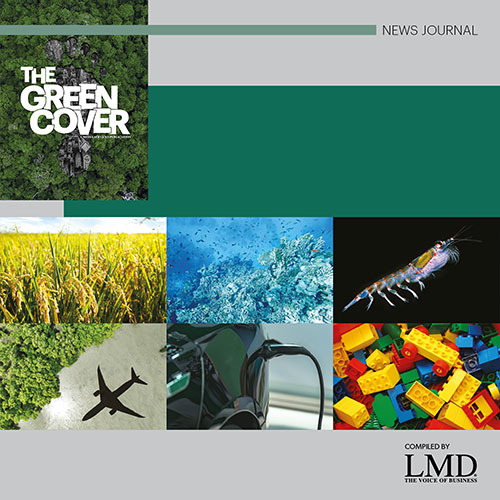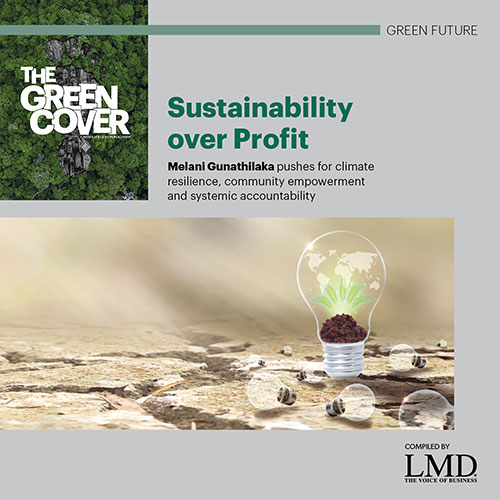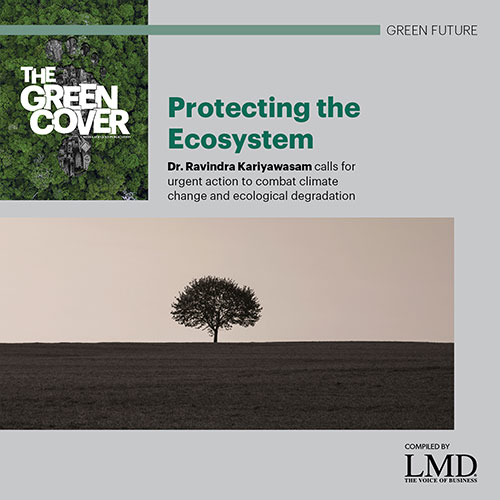GREEN FUTURE
Eco-conscious Commuting
Ganaka Hemachandra champions sustainable mobility and proposes policy driven solutions for Sri Lanka
Clean transportation is essential for a sustainable future as it helps reduce congestion, enhances travel efficiency and minimises time lost in traffic. An efficient transport network ensures smooth connectivity, supports economic productivity and improves overall mobility.
Ganaka Hemachandra says: “By promoting sustainable options such as electric buses and trains, the government can facilitate an efficient commute for the workforce, and ultimately enhance productivity and quality of life.”
He adds: “Investing in clean transportation leads to reduced pollutants, improves air quality and public health.” Hemachandra emphasises that a well-planned and sustainable transport system supports economic growth while minimising environmental impact, and creates a healthier and more efficient society.
Presently, Sri Lanka faces significant challenges in reducing transportation-related emissions due to its heavy reliance on fossil fuels, limited electric vehicle (EV) infrastructure and an aging vehicle fleet. Commenting on this, Hemachandra observes: “High congestion and inadequate public transport further increase fuel consumption and emissions.”
He adds: “Poor urban planning restricts walkability and cycling infrastructure, while fuel subsidies and laid-back emissions regulations fail to encourage the transition to clean energy solutions.” Additionally, the maritime and aviation sectors also contribute substantially to emissions with minimal incentives for low emission alternatives.
Hemachandra stresses: “Public transport in Sri Lanka can become more sustainable and accessible through electrification and infrastructure upgrades.” Transitioning buses and trains to electric power will lower emissions, reduce fuel costs and improve air quality. He highlights that government incentives and charging infrastructure investments can accelerate this shift.
He continues: “Integrated transport hubs that connect buses, trains and last mile options such as cycling and walking paths will enhance accessibility.” Hemachandra adds that well-planned multimodal hubs with digital ticketing and real-time tracking will make public transport more efficient and user-friendly.
“These measures will create a greener and more inclusive transport system that helps reduce congestion and improves mobility for all citizens,” he emphasises.
Hemachandra says that the government can encourage clean transportation adoption through financial incentives and infrastructure development. “Offering tax breaks, subsidies and low-interest loans for EVs and hybrid fleets will make them more affordable for individuals and businesses,” he highlights and adds that a trade-in programme for old high emission vehicles will further expedite this transition.
He also notes that expanding EV charging networks with incentives for businesses to install charging stations in commercial areas and along highways will enhance convenience. And special electricity tariffs for EV charging will reduce operational costs.
Ganaka Hemachandra
Engineer
Managing Director
Sri Lanka Ports Authority








